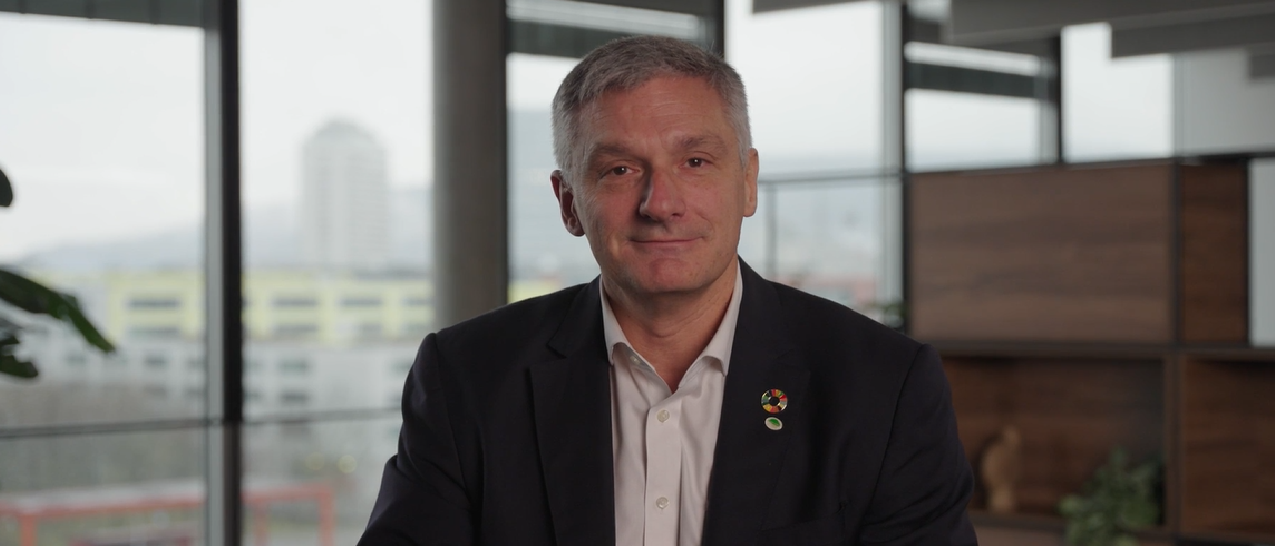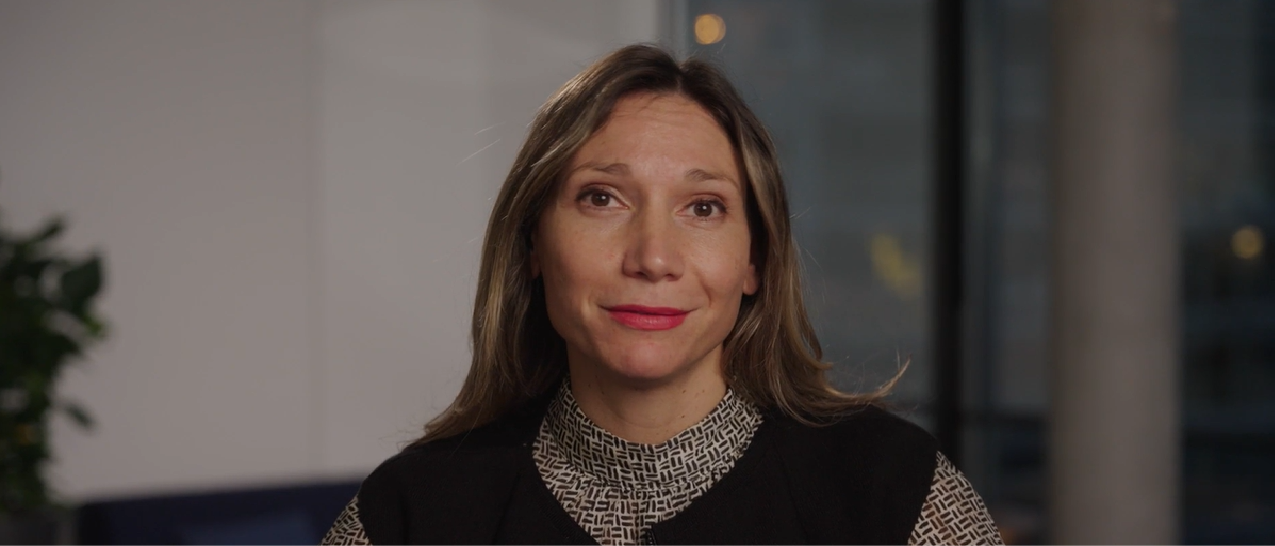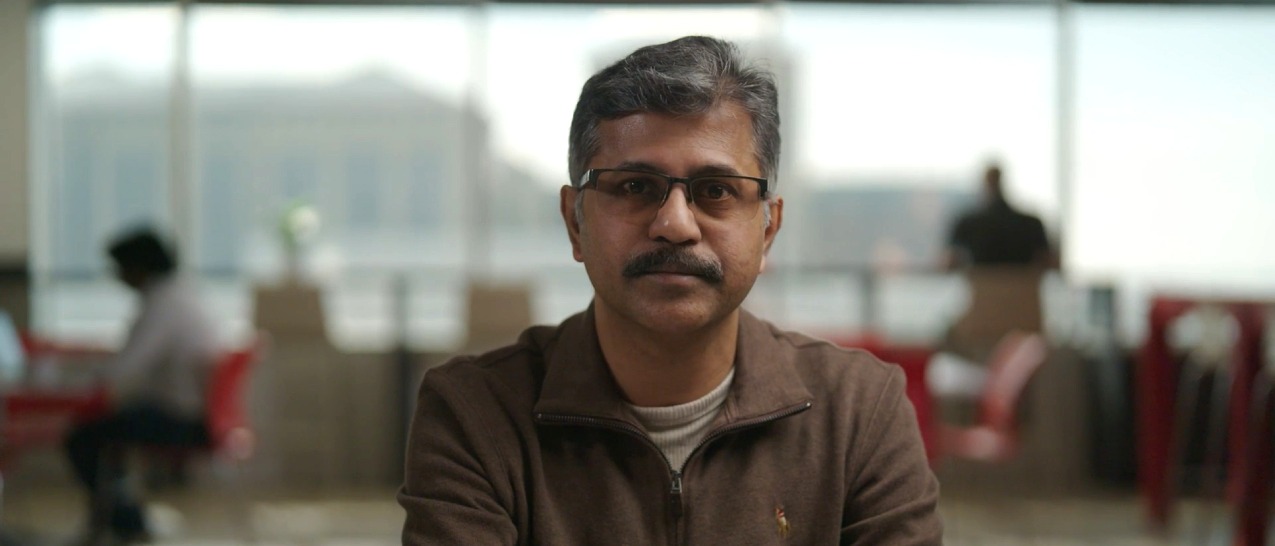

Meet the 113-year-old start-up ready to turbo-charge transport decarbonisation
By Ram Ramachander, Chief Executive, Hitachi ZeroCarbon
Hitachi is a 113-year-old business, proudly powered by pioneering spirit. But today, I truly believe we are in the driving seat of a whole new Hitachi - built to accelerate transport decarbonisation and inspire others to join the race to net zero.
Transportation accounts for around a quarter of global carbon emissions, so as a climate change innovator looking to help governments and businesses reach net zero, we knew that action was needed to unlock the opportunity around fleet decarbonisation. This is how Hitachi ZeroCarbon, a new Hitachi business unit designed to connect the electrification dots, was first born.
"We are in the driving seat of a whole new Hitachi - built to accelerate transport decarbonisation and inspire others to join the race to net zero."
Ram Ramachander
Chief Executive, Hitachi ZeroCarbon

Hitachi ZeroCarbon's origins lie in the shift from internal combustion engine (ICE) transport to electric vehicles (EVs). But as this shift gathers momentum globally, the electricity grid looms large as a potential bottleneck. EVs require an extensive charging infrastructure that drives a massive increase in electricity use. So network operators, electricity users and governments need to plan ahead to meet this demand.
Against this backdrop, Hitachi's breadth and depth of offer puts us in a strong position to address this challenge. Hitachi Energy can provide all the infrastructure organisations need for electrification, Hitachi Rail can deliver global integrated rail solutions and broker major long-term contracts, and Hitachi Vantara can help organisations maximise their data advantage.
With these business units at our disposal, Hitachi was selected as the project lead for Optimise Prime, the world's largest commercial electric vehicle trial to date.
This is where the seeds for Hitachi ZeroCarbon were sown. The programme saw Hitachi collaborate with Royal Mail, Uber, UK Power Networks, Centrica and Scottish and Southern Electricity Networks in a three-year trial that aimed to inform the UK government on how best to develop its commercial EV infrastructure.
All this work helps us understand what the transition to battery vehicles will look like. What became very clear to us was that although there were solutions to create every single aspect of the programme, there was no over-arching ecosystem for the management and optimisation of the vehicle battery, the management and optimisation of the charging infrastructure and the end-to-end management and optimisation of power from the grid into the battery.
We need to electrify our transport system and this transformation offers the additional opportunity for using digital solutions to drive efficiency and optimisation of our transportation networks. While this is a significant opportunity, it is challenging for fleet operators who not only require a clear plan to phase out their existing fleet but also need capital to invest in the next generation.

Part of Hitachi's answer to this challenge is delivered in Hitachi ZeroCarbon's first ever strategic partnership, an alliance with First Bus, who operate 20% of the UK bus fleet.
Together we are delivering a unique combination of digital, operational and physical solutions to decarbonise their fleet and transform the way they use energy across their business.
One way we're doing this is through battery optimisation and monitoring technology to enable effective use of their battery fleet for as long as possible. We're also working closely with R&D colleagues and Hitachi High-Tech to develop the battery of the future.
And this is why, whilst we're proud to have a start-up mentality within Hitachi ZeroCarbon, we are also fortunate to sit within a huge global business which means we can tap into the resources, capabilities and financial muscle of the wider Hitachi network to deliver meaningful and tangible change to the mobility sector. Our partnership with First Bus is just the first step on delivering on this potential.
The reality is that there is no master plan for the energy transition and what we need today is true partnership - nations and governments coming together with the financial world and the business world to build a plan for the future. We've launched Hitachi ZeroCarbon to try and accelerate this plan - are you ready to come along on the ride?









